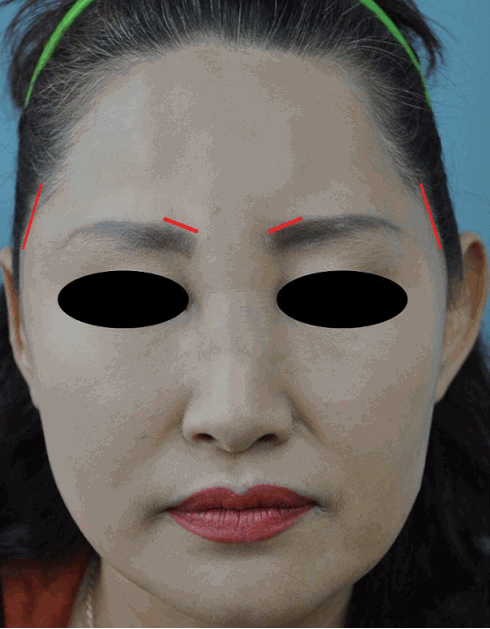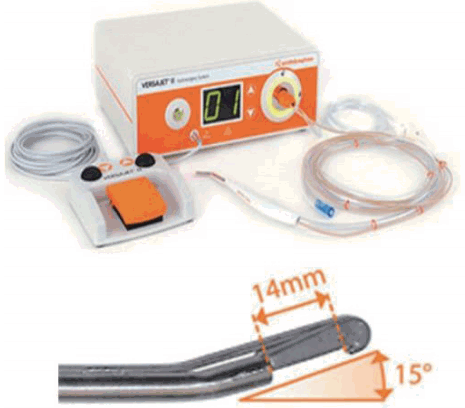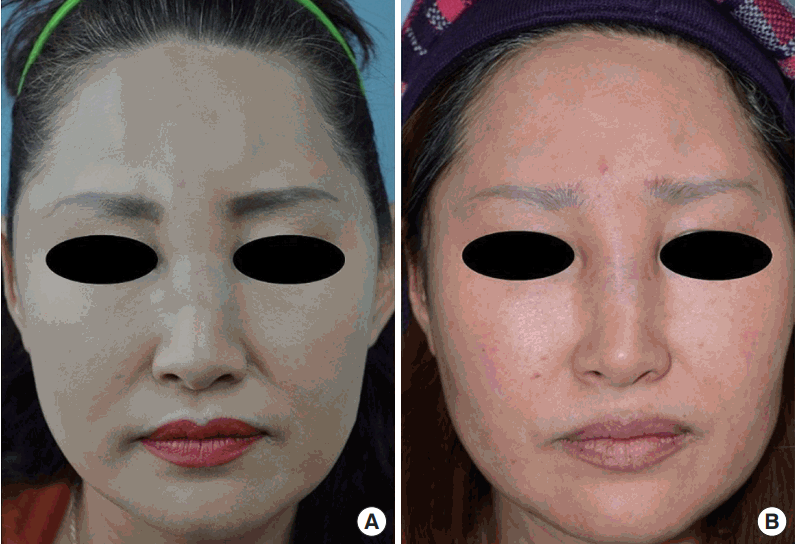Usefulness of the Versajet Hydrosurgery System for the Removal of Foreign Body Granuloma
Article information
Materials used for cosmetic/reconstructive purposes can elicit foreign body reactions, resulting in granulomas. Foreign body granulomas are treated with intralesional corticosteroid injections and excisional surgery [1].
A 44-year-old woman presented with irregularities and areas of hardness across the forehead, glabella, and temple. She had undergone a cosmetic procedure involving the injection of an unknown material into these sites 10 years before. We diagnosed the case as foreign body granuloma. We administered 2 intralesional triamcinolone injections (20 mg/mL) at 1-month intervals, but the discomfort persisted. Therefore, we performed surgery using the Versajet hydrosurgery system. The patient was administered anesthesia via propofol, followed by local anesthesia with lidocaine. After 1-cm incisions in both suprabrow areas and 2-cm incisions in the temple area were made, dissection was performed subcutaneously (Fig. 1). We approached the target areas with the 15° Versajet handpiece to remove approximately 5 mL of granuloma fluid (Fig. 2). A postoperative compression dressing was maintained for 3 days to prevent hematoma. The swelling persisted for 1 month. After 3 months of follow-up, the irregularities had improved, and the patient was satisfied with the cosmetic outcomes (Fig. 3).
Versajet uses a razor-thin saline jet for tissue debridement and involves reduced scarring because of the smaller incisions. Sterile saline is used for tissue irrigation while the granulomas are removed; the remaining debris is washed out through a localized vacuum effect. The procedure can be completed quickly because the number of debridement sessions required decreases during the procedure [2,3]. Versajet may be a useful tool for the surgical removal of foreign body granulomas.
Notes
No potential conflict of interest relevant to this article was reported.


